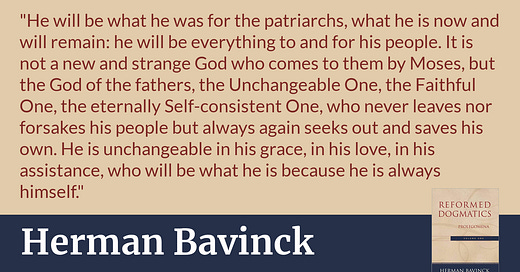YHWH
“Then Moses said to God, “If I come to the people of Israel and say to them, ‘The God of your fathers has sent me to you,’ and they ask me, ‘What is his name?’ what shall I say to them?” God said to Moses, “I AM WHO I AM.” And he said, “Say this to the people of Israel: ‘I AM has sent me to you.’ ”” (Exodus 3:13–14, ESV)
God Revealed to Moses
When God revealed himself to Moses, he used the name YHWH. Some have said this is the unpronounceable name of God because it has no vowels. Others have transliterated it as Yahweh or Jehovah.
The Jews believed this was the forbidden name of God—one they could never speak—so they replaced it with Adonai, which means “Master/Lord.” Interestingly enough, our modern translations have followed this pattern and translated YHWH as LORD (all caps). So, whenever you see LORD in all caps, you are reading about this particular name of God.
I Am Who I Am
When God reveals himself to Moses, Moses worries about God’s people. He asks God, “If I come to the people of Israel and say to them, ‘The God of your fathers has sent me to you,’ and they ask me, ‘What is his name?’ what shall I say to them?” (Exodus 3:13). God responds to Moses by saying, “‘I AM WHO I AM.’ And he said, ‘Say this to the people of Israel: “I AM has sent me to you.”’” (Exodus 3:14). God’s name is “I am” or “I am who I am.” We could also translate it, “I will be who I will be”
There has been a lot of speculation about what God is revealing in this name. Some believe God is revealing that he is the unchangeable God—He is who He is. Others believe God is revealing that is the infinite God—he has no beginning nor end, but HE IS. Others believe God is revealing himself as ultimate being—He is—over against the idols who have no being.
The God of Covenant
These understandings have aspects of truth to them, but they don’t quite hit the mark. When God reveals himself to Moses as “I am who I am,” it is in the context of Moses talking about “The God of your fathers” sending him. He is who he is in regards to “the fathers”: Abraham, Isaac, and Jacob. He will be who he will be in regards to Abraham, Isaac, and Jacob.
Herman Bavinck explains this beautifully:
“He will be what he was for the patriarchs, what he is now and will remain: he will be everything to and for his people. It is not a new and strange God who comes to them by Moses, but the God of the fathers, the Unchangeable One, the Faithful One, the eternally Self-consistent One, who never leaves nor forsakes his people but always again seeks out and saves his own. He is unchangeable in his grace, in his love, in his assistance, who will be what he is because he is always himself.”
(Reformed Dogmatics, p. 143)
The Power of I Am
This is the power of knowing God as “I am.” When we see God’s faithfulness to his people throughout the Old Testament, we are reminded that he is the same God we worship and follow today. He is faithful to us in the same way He was faithful to them because He is who He is. We do not worship a new and strange God, but a God who has stuck with his people through thick and thin, always seeking and saving them.
The God we worship is always himself. He doesn’t change with the times or with the whims of culture. He is a rock of unchanging love, and grace, and support in time of need.
Because He is “I am” we can fully put our faith and trust in Him. He will never let us down. He’s proven it throughout the centuries. We can stop trusting in ourselves and fully trust in the God who is who He is.



